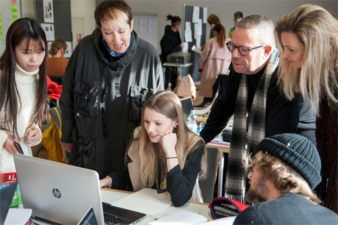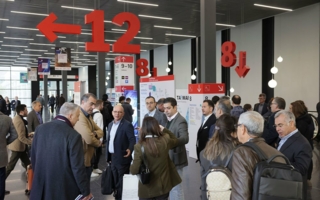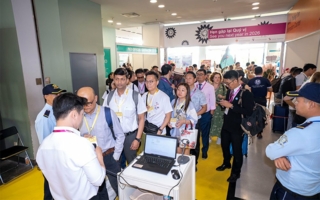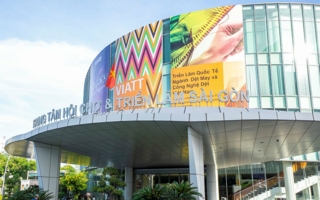19/03/2018 – ISPO Academy — auf Deutsch lesen
Masterclass in cooperation with ISPO Academy
Sports New Clothes – that has been the motto and the design challenge for the third Masterclass within the framework of the ISPO Academy.
‘Thinking design in a digital context
At an interdisciplinary workshop during the ISPO Munich 2018, 28 students from nine world-renowned schools from three continents set about developing new concepts for clothing. Designer Cornelia Sievers supported the renowned sports fashion designers Nora Kühner and Rolf Günther through the workshop.
Working as groups, the students shaped detailed concepts according to the previously specified task assignment ‘Sports New Clothes. Modular. Versatile. Sustainable‘. ‘The subject matter was taken from the fairy tale ‘The Emperor‘s New Clothes‘ ‘, says Kühner. The students were not supposed to develop an item of clothing; rather a ‘Set of clothing parts‘, which could be varied according to the occasion. ‘In this point, the third Masterclass goes a step further than the previous ones, which concentrated on precise items of clothing.‘
The Emperor‘s New Clothes
Apart from the Design Challenge, the students had the opportunity of comparing notes and networking with experts from various material manufacturers and sports brands. Additionally, the presentations from Bernd Keller, COO of Marc O’Polo, and the well-known British fashion designer Christopher Raeburn were well-received.
Kühner is pleased that she could win over to the Masterclass business giants like Raeburn and Keller. Both really enjoyed the intensive exchanges with the students. ‘This year, my compliments go more than ever to the participants of the Masterclass‘, says Kühner. ‘They’ve all worked in a really extraordinarily concentrated and focused manner. You can see that from the concepts generated.‘
In total, six concepts were developed. A good example was the design idea of ‘Humanized Technology‘. Behind this design concept lies the thought that digital technologies and possibilities do not exist for themselves, but rather for the people working with them. The technologies used – such as 3-D-cutting systems or body-scans – find the optimal, individual arrangement of pattern for bodies in motion. In this way, custom-made items of clothing are generated through improved results in pattern design.
A second concept bears the name ‘New Kit on the Sport‘. Here, the students developed a modular clothing system, that works via an app. The customer might have particular requirements (e.g. Climbing in the Himalayas) and can use the digital assistant to have the required clothing delivered in three or four stages. ‘This concept really impressed me‘, says Kühner, ‘The students had thought of
everything, and had even designed a website in preparation for the presentation.“
The future of sports fashion designs
In Kühner’s view, the suggested concepts and the exchanges during the third Masterclass delivered valuable findings for the future of sports fashion designs:
Products must be thought out in a digital context. The young generation – illustrated by this Masterclass – has gone further than we ever could have imagined. Indeed, every Masterclass group had implicitly included digitalisation in their thinking – and not put it under a separate heading.
The current Masterclass generation has a totally different approach to product design than previous established designer generations. Development occurs in a digital context, and, for the students, such things as apps or 3-D-printing automatically belong their line of work.
The challenge for many brands: Digitalisation begins with design and with product development, not with distribution or marketing. This is where the younger generation can help.
For this reason, it is worth establishing an early dialogue with the youngsters. Today, young designers can deliver the necessary stimulus to create products to lead the field.
Of course, for the coming generations, sustainability is a subject which plays a primary role in product design and development.
The following nine international schools contributed the 28 participents to the third Masterclass:
Beijing Institute of Fashion Technology (China)
IFA Paris (France)
Kunstuniversität Linz (Austria)
London College of Fashion (UK)
Modefachschule Sigmaringen (Germany)
Shih Chien University (Taiwan)
The Swedish School of Textiles / University of Borås (Sweden)
University of Lapland (Finland)
University of Oregon (USA)
Just as last year, there will be a follow-up workshop to the third Masterclass. One of the thematic concepts will then be developed further during an intensive seminar lasting several days. After that, details will follow over the next few weeks.





